Tech Company Layoffs In 2023: Cuts Didn’t Stop In Q3
Tech layoffs, particularly in the security industry, continued unabated in the third calendar quarter of 2023 as tech companies looked to re-adjust growth plans, prepared for a possible economic downturn or, in at least one case, a bankruptcy, even as many other firms planned to increase their employee headcounts.

Tech Layoffs Continue
For some companies, it was looking for increased efficiency. For others, it was macroeconomic headwinds. For some it was a one-time deal while for others it was part of a series of planned changes. And for at least one, it was bankruptcy.
Whatever the reason, tech companies in the third quarter of 2023 continued to lay off employees as a way to either make way for a better future or get ready for an uncertain future.
Indeed, an on-line website tracking tech layoffs, Layoffs.fyi, estimated that 1,036 tech companies have laid off a total of 238,397 employees in the first nine months of 2023.
[Related: Tech Company Layoffs In 2023: The Cuts Continue In Second Quarter]
That number includes all types of tech companies, from the largest hyperscalers like Google Cloud and Amazon to game manufacturers and cryptocurrency firms.
CRN has compiled a list of tech companies that have laid off workers since July 1 of this year. Note that this list of tech layoffs is focused primarily on companies with a major focus on the B2B IT sector and does not include layoffs at consumer-focused companies such as Epic Games. This list also does not include layoffs of tech staff by companies not normally considered to be tech companies.
But just because tech layoffs are happening does not mean all is gloom and doom for tech employees. Indeed, hiring in the tech space is still very much alive.
For instance, managed security services provider Novacoast is looking to grow its staff from 400 employees now to 1,000 employees within the next three to five years, CEO Paul Anderson told CRN in September.
IT solution provider World Wide Technology is on pace to hire 700 net-new employees by year end, and had already hired about 500 of those as of early September.
There’s a lot happening in the employment part of the still vibrant tech sector. For details, read on.
Wade Millward, Mark Haranas, Kyle Alspach, Dylan Martin, CJ Fairfield, Gina Narcisi, and Steve Burke contributed to this article.

July 5: SaaS Startup ClickUp Cuts 10 Percent Of Employees
San Diego, Calif.-based ClickUp, which develops productivity and project management software-as-a-service, confirmed in early July that the company was laying off approximately 10 percent of its workforce.
The company at the time had a workforce of between 900 to 1,000 employees, meaning about 90 to 100 employees would be impacted. This comes as the company is preparing itself for a possible initial public offering in the future. ClickUp raised $400 million in 2021, putting a $4 billion valuation on the productivity platform startup.
“We made the difficult decision to reduce the size of our workforce, primarily to move a portion of our support roles to lower-cost regions,” said ClickUp CEO and founder Zeb Evans in a statement. “This realignment enables us to be a best-in-class IPO-ready company in efficiency while continuing to overachieve in growth.”

July 6: Solidigm Cuts 98 Jobs
SSD and flash storage component manufacturer Solidigm in July laid off 98 employees from its new Rancho Cordova, Calif., headquarters, Business Journals reported.
The layoffs came less than a year after Solidigm moved its headquarters from San Jose, Calif., to Ranch Cordova. The company is building out a research and development campus as well as offices at that site, business Journals reported.
Solidigm is arguably the biggest storage startup in history. It was formed on Dec. 29, 2021 when Intel sold its SSD business and certain NAND SSD-associated intellectual properties, as well as its Dalian, China-based NAND memory manufacturing facility, to South Korea-based semiconductor manufacturer SK Hynix, in a deal worth $7 billion, creating a new company called Solidigm.
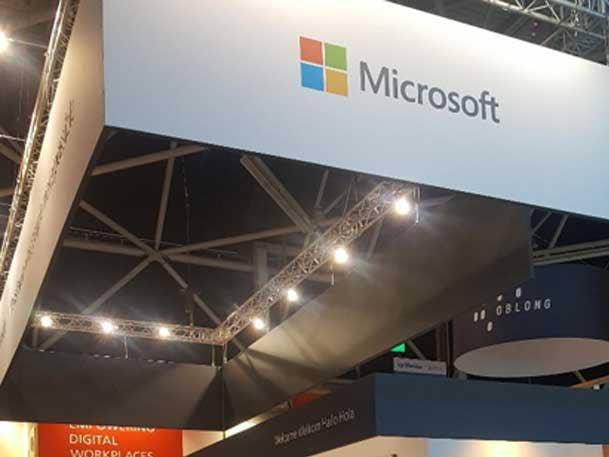
July 10: More Microsoft Layoffs As Vendor Starts 2024 Fiscal Year
Microsoft in July began another round of job cuts less than two weeks after the end of its 2023 fiscal year and just before its annual Inspire partner-focused conference. Those layoffs were in addition to the 10,000 layoffs the Redmond, Wash.-based software giant said in July it would cut. The job cuts hit an unknown number of employees in customer service, support and sales.
“Organizational and workforce adjustments are a necessary and regular part of managing our business,” a Microsoft spokesperson e-mailed to CRN. “We will continue to prioritize and invest in strategic growth areas for our future and in support of our customers and partners.”

July 13: Deepwatch Lays Off 30
Deepwatch, a Tampa, Fla.-based provider of managed detection and response (MDR) with a 100-percent focus on indirect channel sales, disclosed via a CEO post on its website plans to cut 30 personnel, or about 7 percent of its employees. CEO Charlie Thomas wrote in his post that the majority of the layoffs were in sales and marketing, and called it a challenging decision that was necessitated by the difficult economic environment.
“While Deepwatch has been experiencing impressive growth, we are seeing macroeconomic conditions extend our sales cycles by an average of two months with some deals pushed entirely. We anticipate continued economic headwinds in the second half of this year,” Thomas wrote in the post.
As a result, Deepwatch opted to implement the reductions to align with its second-half projections and longer term goals to ensure it is best positioned for strong growth and profitability in the future, he wrote.

July 18: Ingram Micro Lays Off 200 To 300 Workers
IT distribution giant Ingram Micro in mid-July implemented layoffs citing challenging market conditions. An Ingram Micro spokesperson told CRN in a statement, “Ingram Micro did announce some changes to the team. These were made as a result of changing global and local market conditions, and we realize these changes are significant to those impacted. We will continue to invest in developing our teams to adapt to market opportunities and provide the best experience to our channel partners.”
While Ingram Micro did not disclose how many employees were laid off or what departments were affected, the layoff-tracking website thelayoff.com estimated that 200 to 300 employees were laid off and most were in management positions.

July 20: Cisco Reportedly Cuts Security Personnel
As part of a round of layoffs in July, tech giant Cisco Systems cut staff in segments including security, according to Blind, a tech career-focused message board. In an email to CRN, Blind cited reports from verified former and current Cisco employees in disclosing the layoffs, although the number of impacted employees in the security unit, and overall, was unclear.
A Cisco spokesperson did not confirm which business units were impacted by the layoffs, but told CRN they were part of a rebalancing initiative that the company disclosed on November 2022. “As we announced then, this is not about cost savings as we have roughly the same number of employees as we did before the process began,” Cisco said in an email to CRN. “This rebalancing is about prioritizing investments in our transformation to meet and exceed our customers’ expectations in the changing technology landscape.”

July 31: Accenture Plans To Cut 890 Employees In Ireland
Global solution provider Accenture is laying off 890 of its Ireland-based employees. The layoffs, which represent the second mass layoff of employees of Accenture’s Irish operations, are impacting 890 of the company’s 6,500 employees in the country.
The layoffs are part of a plan by the Dublin-based global services provider to lay off 19,000 employees over the next 18 months after a year in which it made 25 acquisitions and increased its headcount by 39,000.
An Accenture spokesperson responded via email to a CRN request for further information with a statement saying the company continues to streamline its operations with a focus on ensuring it has the right talent to serve its clients and run its current and future business. “We will be commencing a collective employee consultation for a proposed redundancy programme that is expected to affect around 890 people at Accenture in Ireland. We do not plan to comment further while the consultation process is ongoing.
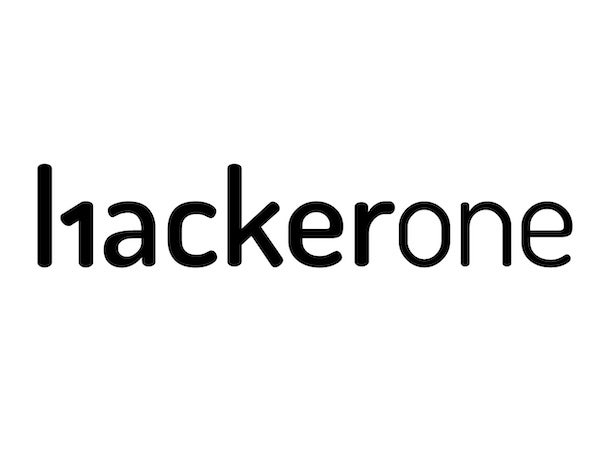
August 2: HackerOne Lets Go 12 Percent Of Its Staff
HackerOne, a widely used platform for bug bounties and penetration testing, told employees on August 2 that it planned to eliminate 12 percent of positions within the company. In an email to staff, which the company posted on its website, HackerOne CEO Marten Mickos called it a painful and necessary decision, which was nonetheless necessary to the company’s long-term success.
The San Francisco-based company did not say how many employees would be impacted, but on-line news site TechCrunch reported that the layoffs likely affected over 50 HackerOne staff members.
The layoffs, slated as a one-time event, were a response in part both to the economic environment and the introduction of new products that ultimately didn’t perform as expected, Mickos wrote. “Our bets on hiring and new products proved to be too big, and we must now restructure our teams to be successful in the future,” he wrote.

August 2: Salesforce Adds To Previous Layoff Round
Salesforce in early August laid off about 50 employees in its Ireland office, according to Bloomberg. This new round of layoffs is in addition to the plans to lay off 7,000 employees that Salesforce disclosed in January.
Salesforce CEO Marc Benioff in January unveiled plans to lay off around 7,000 employees over the next few weeks due to hiring too many employees during the COVID-19 pandemic.
“As our revenue accelerated through the pandemic, we hired too many people leading into this economic downturn we’re now facing, and I take responsibility for that,” said Benioff in a letter to employees that was filed with the U.S. Securities and Exchange Commission.
In the latest round, Salesforce laid off staff primarily in the sales and customer success teams in Ireland, Bloomberg reported. Bloomberg said Salesforce did not say whether the layoffs will impact employees in other countries.

August 7: Dell Plans Layoff Of Some Sales Staff
Dell on August 7 said it planned to eliminate an unspecified number of sales roles as a results of the company’s new partner-led storage strategy. It was unclear if those cuts were in addition to the massive layoff of 6,650 employees the company unveiled in February.
“Some members of our sales team will leave the company. We don’t make these decisions lightly, and we’ll support those impacted as they transition to their next opportunity,” a Dell spokesperson told CRN. “We’re always assessing our business to remain competitive and ensure we’re set up to deliver the best innovation, value and service to our customers and partners.”

August 9: Rapid7 Lays Off 470 Employees
Boston-based developer of MDR (managed detection and response) technology Rapid7 said in an August 9 blog post penned by company CEO Corey Thomas that the company would lay off about 18 percent of its workforce, or about 470 employees, with significant cuts to sales and engineering staff. The company also decided to permanently close some office locations. Thomas wrote that the layoffs are a difficult decision and may be surprising to employees even though the company was meeting performance expectations. However, he wrote, “making decisions from a place of strength allows us the opportunity to restructure intentionally.”
Employees in sales, engineering, customer success and support, recruitment and other areas of the company were impacted by the layoffs.
Rapid7 will focus on expanding its MDR offering, Thomas wrote in the blog post. “At this inflection point, we will be strategically refocusing and realigning our business toward expanding our MDR leadership across all of security operations, accelerating our investments to build the most adoptable cloud capabilities, and continuing our focus on aligning our operations to deliver the best engagement and support for our customers,” he wrote.

August 14: Round 2 Of Layoffs At Secureworks
Secureworks, an Atlanta, Ga.-based cybersecurity company majority-owned by Dell Technologies, unveiled a second round of layoffs, one that was set to impact about 15 percent of the company’s employees. Secureworks reduced its workforce by 9 percent in February.
In a staff memo filed with the U.S. Securities and Exchange Commission, Secureworks President and CEO Wendy Thomas wrote that the latest cuts were intended to help the company deliver profitable growth.
The vendor continues to heighten its focus on growth areas including its Taegis extended detection and response (XDR) platform, which made up 86 percent of the company’s total annual recurring revenue, Thomas wrote.
Secureworks did not disclose the total number of workers affected by the latest layoffs in the filing with the SEC. The company last disclosed its employee headcount in a regulatory filing in March, when it said that it had 2,149 employees as of Feb. 3.

August 16: New Intel Layoffs Impact GPU And Cloud Software Staff
Intel plans to lay off more than 300 California employees in a wide range of roles, including software development for GPUs, cloud computing and AI computing, as part of ongoing cost-cutting measures. The semiconductor giant disclosed the layoffs in WARN (Worker Adjustment and Retraining Notification) notices received on August 14 and 16 by California’s Employment Development Department. However, some of those employees may actually be moved to new positions, Intel said in the public notices.
The chipmaker has been making job cuts over the past several months after Intel CEO Pat Gelsinger announced a multibillion-dollar spending reduction plan last fall to weather a “pronounced slowdown in demand” as the company moved forward with his ambitious turnaround plan.

Late August: Fortinet Cuts Sales, Channel Personnel
Sunnyvale, Calif.-based network security giant Fortinet confirmed LinkedIn posts from employees that it cut personnel in sales, channel, and business development roles. “Fortinet is assessing business operations and is making thoughtful and strategic decisions to best position the company for continued leadership and growth,” the company said in a statement provided to CRN on Sept. 1. Fortinet declined to disclose how many positions were impacted or provide further details in response to inquiries from CRN.
In early August, Fortinet disclosed financial results for it second fiscal quarter 2023, which ended June 30. The company fell short of revenue expectations and included a cut in guidance. CFO Keith Jensen reported during the company’s quarterly call with analysts that the vendor’s quarterly revenue was affected by an unusually large volume of deals that were delayed beyond the quarter. The company also indicated that previously hot growth areas, such as SD-WAN, have been cooling off for Fortinet.
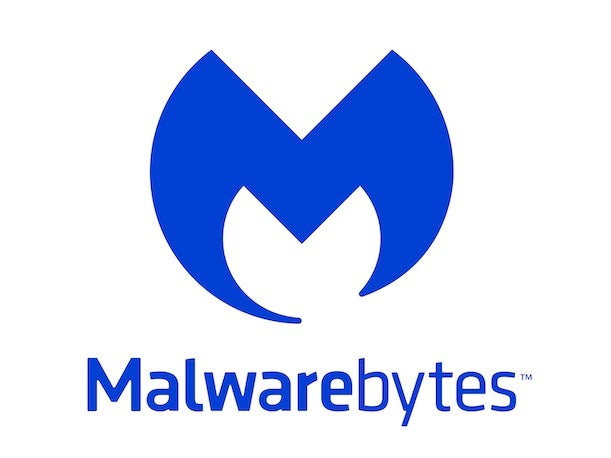
Late August: Malwarebytes Cuts 100-Plus Jobs
Malwarebytes, the Santa Clara, Calif.-based developer of anti-virus and anti-malware technology, in August laid off at least 100 employees, according to multiple reports. In response to an inquiry by CRN, Malwarebytes provided a statement attributed to Co-Founder and CEO Marcin Kleczynski confirming the cutbacks. “In continuing our shift to a channel-first approach and streamlining our corporate business, we’ve parted ways with a number of very talented individuals,” the statement attributed to Kleczynski reads. “While an undeniably difficult decision, we are building for the future.”
The layoffs, first reported by TechCrunch, reportedly came after the company recently let go its chief product officer, chief information officer, and chief technology officer. The TechCrunch report indicated that the new layoffs were part of a restructuring that will split the company’s corporate-focused security business from its consumer unit.

September 5: Zebra Technologies Laying Off “Hundreds”
Zebra Technologies, a Lincolnshire, Ill.-based developer of digital technologies for intelligent connection of data, assets, and people, on September 5 said via a regulatory filing that it will use a voluntary retirement plan as part of its move to shed more than 7 percent of its global employee base, or about 700 employees, due to a slowdown in demand for the vendor’s mobile computing products. Demand declines were most pronounced in the mobile computing business of the Enterprise Visibility and Mobility segment.
Zebra blamed the decline on “fewer large order deployments as we believe large enterprises are absorbing significant capacity built out over recent years, while they are also experiencing tighter capital spending budgets,” according to the filing.

September 7: Slalom Consulting Layoffs Hit 900 Workers
Seattle-based IT consultant Slalom Consulting started the process of laying off about 7 percent of the company’s 13,000 worldwide employees.
Slalom CEO Brad Jackson said via a LinkedIn post that the company has to restructure to meet the challenges of the future.
“After extensively exploring and debating every option possible with our senior leaders, executive committee, and board of directors on how to best position our company during this time of significant shifts within our industry and to plan for the future, we have made the painful decision to restructure Slalom,” Jackson wrote. “This will result in approximately 7 [percent] of our team members leaving the company.”
Slalom offers expertise in cloud architecture, DevOps and security, product engineering, customer relationship management, user experience and user interface design, data architecture, AI and machine learning, and data visualization. The company partners with the likes of Amazon Web Services, Google Cloud, Snowflake, Salesforce and Microsoft, among others.
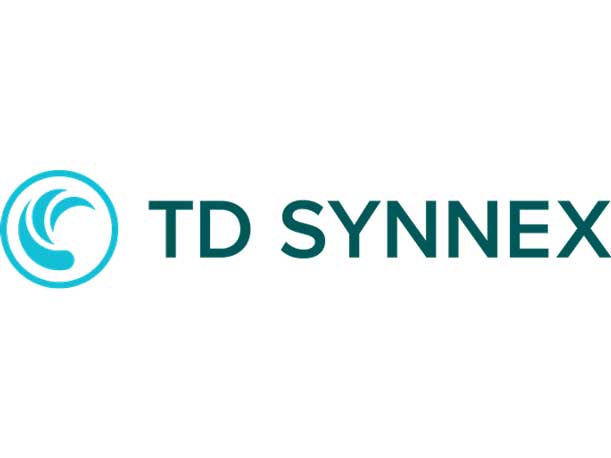
September 15: TD Synnex Starts Layoffs After Voluntary Severance Program
TD Synnex laid off about 100 employees just two months after the IT distribution giant implemented a voluntary severance program, the company confirmed with CRN.
Sources also said that about 300 employees took the voluntary severance package.
The $60 billion distribution powerhouse’s new layoffs impact a wide range of positions including sales reps, vendor business and solutions reps, business development managers, and finance employees, sources told CRN.
A TD Synnex spokesperson, in response to a CRN request for more information, said the layoffs are related to “merger synergies.” That was in reference to the 2021 merger of Tech Data and Synnex, which resulted in what is now TD Synnex.

September 18: Cisco To Lay Off 350 In Bay Area
Cisco Systems in September unveiled plans for a second round of layoffs this year, this time looking to lay off 350 employees in Silicon Valley by October. This includes 227 employees in San Jose and 123 workers in Milpitas by Oct. 16. The largest number of layoffs at both locations are impacting software engineering positions, according to Worker Adjustment and Retraining Notifications (WARN) filed with the state of California.
“These recent notifications are part of the rebalancing effort we began in November 2022. As announced then, this is about prioritizing investments in our transformation and not about cost savings. Cisco has roughly the same number of employees as before the process began, and we continue to do everything we can to help place affected employees in open roles and offer extensive support including generous severance packages,” a Cisco spokesperson told CRN in an email.
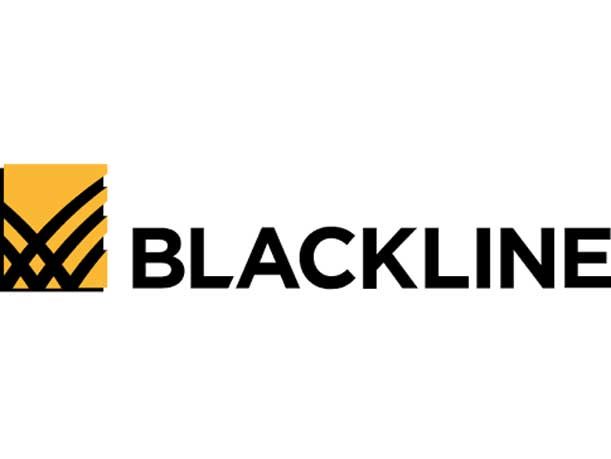
September 28: BlackLine Plans To Cut 9 Percent Of Workforce
Cloud-based accounting software vendor BlackLine Systems plans to lay off about 9 percent of its global workforce, which comes out to 166 people losing their jobs.
The Woodland Hills, Calif.-based company with a market capitalization of $3.26 billion framed the layoffs as “a restructuring plan that is designed to support the company’s growth, scale and profitability objectives,” according to documents filed with the U.S. Securities and Exchange Commission.
Layoffs starting in October will include 95 employees at its headquarters and 21 people from a location in Pleasanton, Calif., according to documents filed with the state of California.
BlackLine expects to pay up to $9 million in severance, termination benefits and other costs related to the layoffs, according to the SEC filings. The vendor will recognize the expenses in the third and fourth quarters of its 2023 fiscal year and will “substantially” complete the process during the fourth quarter. BlackLine expects about $28 million in annual gross cost savings by the end of 2024 through the layoffs.

September 29: IronNet Shuts Down, Lays Off Entire Staff
Cybersecurity vendor IronNet said it will be unable to resume operations and does not expect to get Chapter 11 bankruptcy protection, making a liquidation of its assets likely.
The disclosure came in a filing with the U.S. Securities and Exchange Commission, which also said that it has “terminated the remaining employees” of the company.
Without Chapter 11 bankruptcy protection, IronNet will need to pursue a Chapter 7 liquidation of its assets, the company noted in the filing.
In early September, the company said it was furloughing most employees and halting the bulk of its operations, “as a result of the liquidity position” of the company. However, at the time, IronNet did not rule out the possibility it might regain “sufficient operating liquidity” to rehire its furloughed employees and resume its business operations.